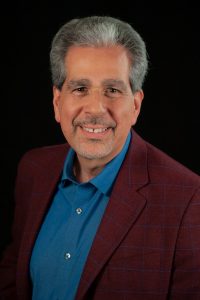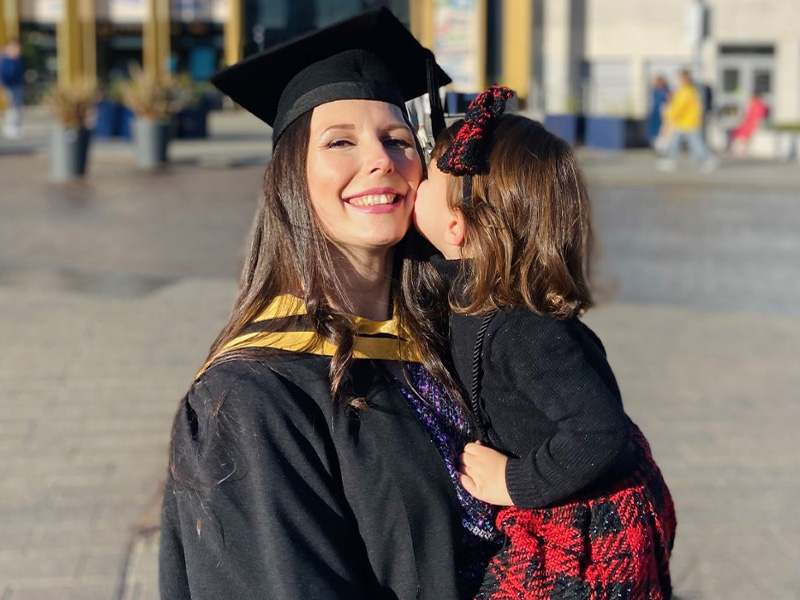Michael Desiderio, Executive Director, Executive MBA Council
 When looking to advance the career ladder, it makes sense to consider management education choices such as a Master of Business Administration (MBA).
When looking to advance the career ladder, it makes sense to consider management education choices such as a Master of Business Administration (MBA).
However, a growing number of today’s executives are selecting Executive MBAs (EMBA). But what exactly is an EMBA, how does it differ from a full-time MBA and how does it help graduates achieve an increase in pay while climbing the ranks?
An EMBA isn’t just a standard qualification. An EMBA is a postgraduate qualification that goes far beyond business fundamentals, encouraging students to broaden their perspective, build peer networks and develop leadership abilities. EMBAs equip those undertaking them with the leadership skills and business knowledge to make significant headway in their professional career. Enrolling in an EMBA programme could result in the best decision made to advance one’s career.
According to the Executive MBA Council (EMBAC)’s 2019 Membership Programme Survey, the number of female students enrolled in an EMBA programme has reached its highest percentage on record (31.2%), showing progress in female representation. EMBA enrolment across the board has been growing too – there has been a 31.6% increase in applicants since 2015.
There are more than 200 universities around the world that offer accredited EMBA programmes to those eager to move up the corporate ladder and develop their skills. Universities and schools offering EMBA programmes in the UK include: Cambridge University, City University, Imperial College London, London Business School and the University of Oxford.
EMBAs are often mistaken to be a higher form of the full-time MBA. But both are effectively the same degree. They are however delivered in different programme formats to meet the needs of the respective constituency they each serve. Although they are equal in terms of distinction and value, the scope, delivery and the professional work experience of the aspiring students in the classroom are what sets EMBAs and full-time MBAs apart from one another.
EMBA programmes vary in part with each institution. However, there are elements that are the same across the board. First, EMBAs are aimed at working professionals who have progressed well in their careers and are seeking a course to enable them to reach the next step in their working lives. On average EMBA students are 38 years old, have about 14 years of work experience and nine years of experience in management. In comparison, full-time MBA students are usually earlier on in their working lives and carrying out their programme to achieve a comprehensive understanding of business and management principles. Both EMBAs and full-time MBAs are usually less than two years in length, though EMBA programmes are structured in a way that helps students alongside full-time work.
Both EMBA and full-time MBA programmes expect students to dedicate significant time to their chosen programmes, including class attendance and independent study. EMBA programmes also entail significant group work throughout, enabling participants to develop teamworking skills and build a valuable network that they can turn to for years after they complete their qualification. EMBA classes are often made up of individuals representing a wide range of backgrounds, organisations and sectors. Having a variety of perspectives is something that really helps students challenge their own way of thinking and see things from a new angle. The collective experience base of those enrolled in EMBAs, which is clearly significant, results in a level of discussion that is substantive and hard to recreate elsewhere.
EMBA graduates benefit from the programme in a myriad of ways, but the main reasons people apply include the desire to grow professionally and enhance specialised skills, the drive to advance up the career ladder, the flexibility of being able to stay in employment while earning a degree and the chance to challenge their way of thinking about the business enterprise. EMBA programmes also allow students to improve critical thinking and problem-solving skills – absolutely crucial as businesses face new challenges from economic uncertainty to rising costs. Female and male EMBA graduates alike have gone on to achieve everything from establishing an award-winning start-up, to adding chief judge to the list of their accomplishments to being promoted to Executive Vice Presidents.
Overall, choosing between a full-time MBA and EMBA programme depends on each individual and where they are in their career. Someone in their mid-twenties with a couple of years of work experience, might look to full-time MBA programme; whereas for someone with substantial work experience, including some form of management experience, an EMBA programme is likely the right path.
Of course, investing in professional development is an important decision that everyone who is thinking about it should fully consider before diving in. EMBAC’s Membership Programme Survey also found that self-funding is on the rise – in 2019, 52.8% of students were self-funding, up from 45.7% in 2018, indicating how important EMBAs are given that more are willing to pay for it themselves. These are rigorous programmes, but ones that are hugely advantageous in terms of what they deliver for successful graduates – the chance for professional growth, specialised skills and the opportunity to gain new perspectives on the business enterprise.
 About the author
About the author
Michael Desiderio joined the Executive MBA Council as executive director in 2007. His experience includes executive leadership roles in industry and education. Prior to joining EMBAC he served as director of strategic partnerships for the W.P. Carey School of Business at Arizona State University. He also founded Enigma Professional Services, a firm that offered business consulting and speaking services. Desiderio received his undergraduate degree in electrical engineering from Pratt Institute in Brooklyn, New York, and his Executive MBA degree in 2001 from the W.P. Carey School at Arizona State University.








